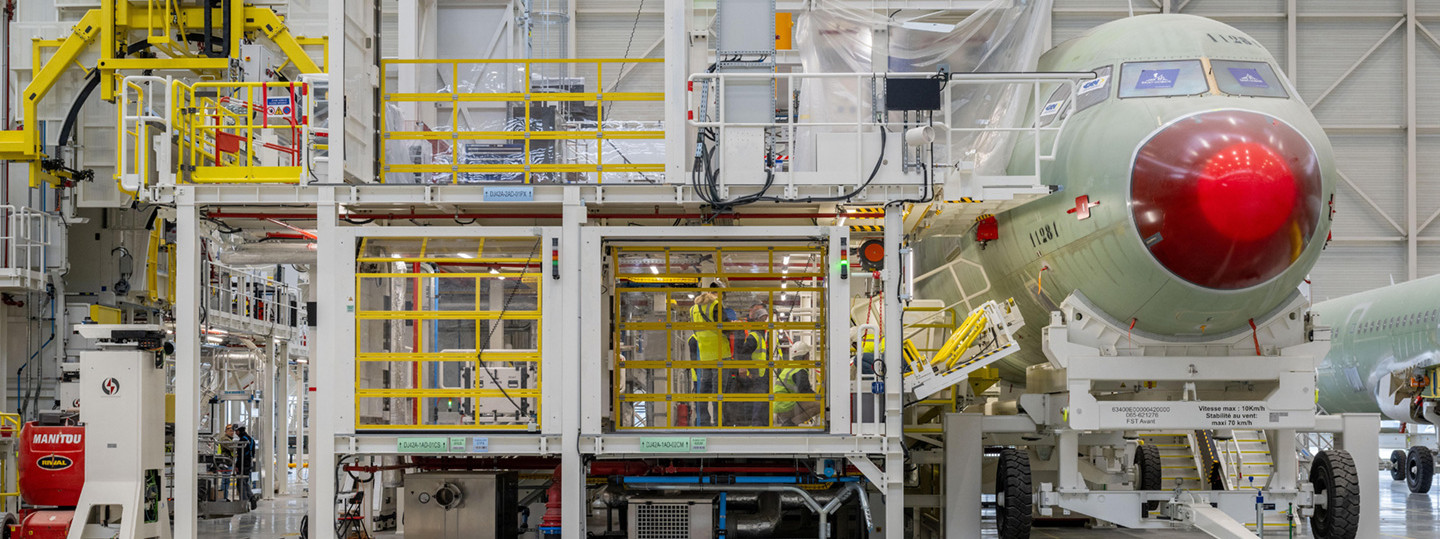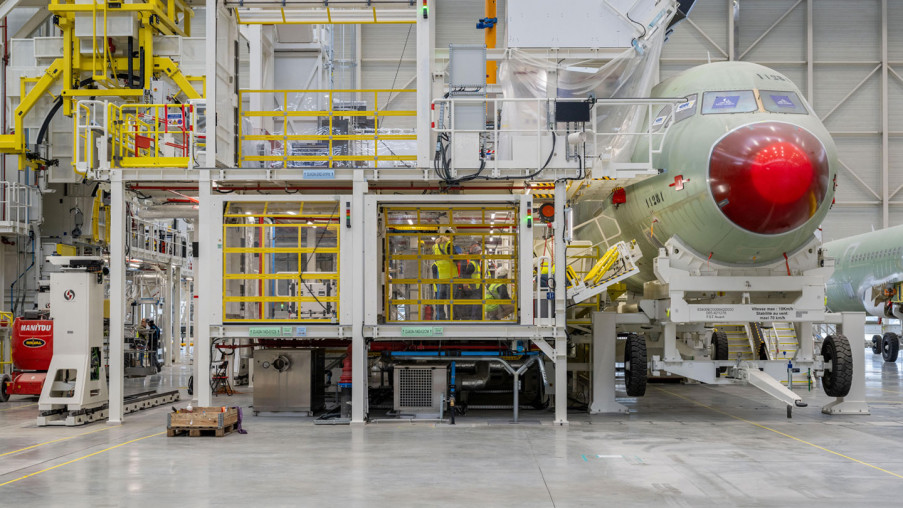
ENGIE is working on the decarbonization of 22 industrial sites of Airbus in Europe
- Ten Airbus sites in Germany and a further twelve in France and Spain are part of the framework agreement
- The aim is to reduce Airbus' energy consumption by 20 percent by 2030 and to
85 percent less greenhouse gas emissions
- ENGIE consolidates its position as European leader in industrial decarbonization and is approaching its goal of accompanying 250 industrial sites on this path by 2030
Cologne - Airbus SE, Europe's largest aerospace group, has entrusted ENGIE with the implementation of its decarbonization strategy. ENGIE will develop and implement tailor-made solutions at 22 of the aviation company's European sites - ten of which are in Germany - that will enable Airbus to achieve its sustainability goals. The corresponding framework agreement was signed at the Paris Air Show. ENGIE is thus consolidating its position as European market leader in the decarbonization of the industry. By 2030, Airbus plans to use 20 percent less energy at its sites in France, Germany and Spain 20 percent less energy consumption and 85 percent less greenhouse gas emissions (Scope 1 and 2) by 2030 compared to 2015. Key strategies include:
- Decarbonization of heat generation,
- energy-efficient solutions,
- local power generation from renewable energies,
- intelligent energy management systems.
In the first phase, the focus will be on the development of individual decarbonization plans and technical studies for each site. The projects will be rolled out gradually from 2026 and commissioned by 2029 at the latest. ENGIE will then operate and maintain the new infrastructure.
Driving forward the decarbonization of the industry
ENGIE and Airbus can look back on over 40 years of successful collaboration in France. Current joint projects include the commissioning of a 20 MW biomass boiler in Toulouse in 2024 and the construction of an 8 MW biomass boiler in Nantes. The new agreement, which now extends the partnership to Germany and Spain, marks a significant milestone in the long-standing cooperation between the two companies. The agreement also confirms ENGIE's ambitious goals to play a central role in the decarbonization of industry in Europe. ENGIE plans to expand its support from the current 160 industrial sites to 250 by 2030. This is to be achieved in particular through the expansion of local energy infrastructures based on renewable energy sources such as biomass, photovoltaics, energy recovery from waste and the use of waste heat.
Expansion of a trusting partnership
"This partnership is based on a long-standing relationship of trust with Airbus. It underlines our ability to implement sustainable energy solutions on an industrial scale for our customers in three of our key European countries by combining local and renewable resources," says Frank Lacroix, Executive Vice President of ENGIE and responsible for the Global Business Unit Local Energy Infrastructures. "Our goal at ENGIE is to make the energy transition reliable and sustainable. For Airbus, as for all our industrial customers, it is about overcoming the challenges of climate change while ensuring the competitiveness and resilience of their respective businesses." Julie Kitcher, Chief Sustainability Officer and Communications at Airbus, adds: "We are excited to take the next step in decarbonizing our sites together with ENGIE. As a trusted partner, ENGIE will support us in significantly reducing energy consumption and industrial emissions at our European sites by 2030. We see the combination of Airbus' local expertise and ENGIE's technical know-how as a recipe for success in achieving our goals."
On the road to greater sustainability: ENGIE and Airbus are driving the decarbonization of 22 European industrial sites. The photo shows the Airbus plant in Toulouse.
Your contact
ENGIE Deutschland GmbH
